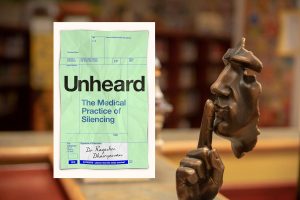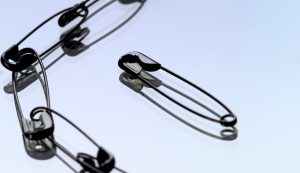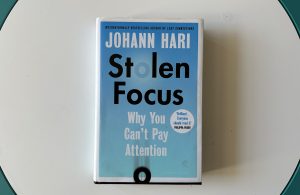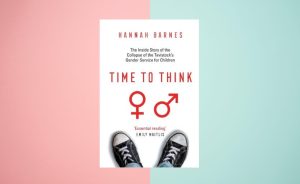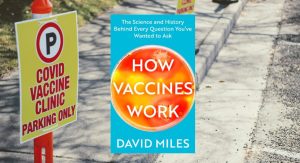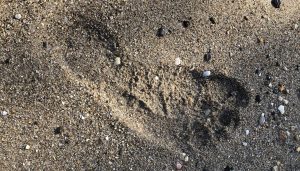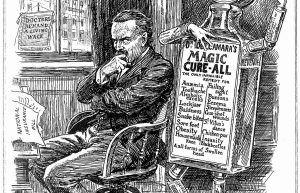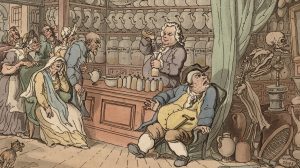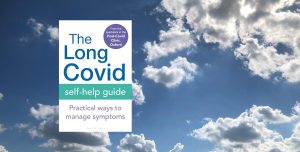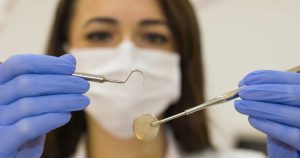...let’s talk a minute about what needs to happen so that the development and use of something like a patient passport can be done in a meaningful and inclusive way. It seems right that we talk about it here, as primary care
"Dysautonomia, an invisible illness, may be one of the most misdiagnosed medical conditions of all time .. " – Elke Hausmann reviews The Dysautonomia Project - Understanding Autonomic Nervous System Disorders for Physicians and Patients.
Is it better to think of patients as a body and a mind, or as a single entity that has both physical and conscious attributes? Alistair Appleby invites us to reflect.
This is a gripping story of two remarkable families, a remarkable heart and a remarkable organ donor system, faultlessly told. There will, I am sure, be a film of the book.
In the second of two articles on NHS funding formulae, Rodney Jones looks at trends in death and the implications for cost pressures on the NHS. Why can’t government funding take into account the well-established nearness to death (NTD) methodologies, ending the
The practice of silencing is unjust and unfair, but probably universal in medicine. Trisha Greenhalgh reflects on a 'powerful' new book that is packed with compelling patient stories and accessible summaries of the academic literature. And for the teachers and trainers among
We know ambulance trusts in the UK are increasingly employing GPs, and whilst the theory is there, we wanted to explore the evidence. What follows is a summary of our discussions exploring key similarities and differences in approaches to out-of-hours (OOH) care,
"Confidence in the future of NHS primary care is thin right now. My resilience suddenly really matters. Are the two linked?" asks Saul Miller.
Employing lower skilled healthcarers at the ‘diagnostic front door’ of general practice will not save money, resources, professional time or efficiently – it produces the opposite. David Zigmond invites debate.
Yonder: Care coordination, anal cancer prevention, lay online communication, and positive body image
Ahmed Rashid curates a selection of useful and interesting papers. This month: Care coordination, anal cancer prevention, lay online communication, and positive body image.
"After a storm, the sand shifts. Amazing volumes appear and disappear from areas of the beach. Dunes are sliced away, leaving sand-cliffs. Others newly appear. Rock and the keel-spines of old wrecks are exposed that I never knew lay there at all.
"It was 1981. As a GP trainee I walked into the Automobile Association shop in Brighton and saw a cheap, yellow, elegant polypropylene car tyre foot pump. I realised that this would be ideal when attached to a nebuliser unit for asthma
In this poem Kathleen Wenaden considers compassion fatigue, a topic of some importance to GPs. When faced with 'an urge for fixing, for making better', is there really 'nothing left to give'?
It’s liberating to imagine a world where GP expertise is recognised and valued. We can start right at the beginning of the Deep End GP meetings. Imagine that! A world with no more reports saying “GPs should…” but lots of “Hey, GPs,
Pregnancy for deaf women, prison mental healthcare, sexual health non-attendance, and compassion
So the NHS is in crisis. Again. Saul Miller argues that there is a thread that runs through all of these. It is the thread that is labelled expediency or short-termism.
So, doctors... are learning to be afraid of uncertainty, ordering ever more tests and prescribing more and more, to try – often in vain – to be sure... But where does that leave Patient Earth?
In his new book, Johann Hari, mindful of his own and his family’s inability to be fully present, addicted to technology and exhausted (and hating it) starts to explore the reasons why we have are all struggling to focus.
What are GP trainers' thinking? Saul Miller gives us a glimpse.
Today it is for you and your colleagues to rebuild and sustain those relationships. You have a wonderful tool for doing this in your surgery’s website. Use it to tell your patients how your surgery works.
Hannah Barnes has written a detailed account of what happened at the Tavistock and Portman NHS Foundation Trust’s Gender Identity Development Service (GIDS). Margaret McCartney reflects on the risk that healthcare organisations run when worries from staff translate into organisational defensiveness.
The reporting of a limited set of nationally important diagnoses, some risk factors and some quantitative measures leaves a lot more of the work invisible. It is this invisible work that holds the health system together, argues Tim Senior.
GPs are not the target audience of this book. It a well-written potted history of the technology of vaccination. GPs may, however, find the book to be a well-written, highly accessible, and generally accurate resource to recommend to their patients...
In the surgery, patients still express the hopelessness of their lived reality: lives built around sitting; exercise options that are difficult to access geographically and financially; and the cheapest food options too often the ‘wrong’ choices...
Most developed countries have increasingly diverse populations. This context presents a challenge to empathic healthcare, as well as an opportunity. Better communication, treating diversity as an opportunity, and formal training in empathy and diversity can help transform diversity from a potential barrier
As depression in older people can present with somatic and cognitive symptoms, it is often attributed to normal ageing and may be overlooked by the clinician and the older adult. Carolyn Chew-Graham and colleagues share insights from the latest NICE guidance.
With climate change resulting in increasing temperatures all around the world, what exactly does heat do to our cells and vital organs?
Andrew Papanikitas reviews 'Jews Don't Count' by comedian David Baddiel, a reflective essay that unpacks the idea that either you can’t be racist to or that is somehow ok to be racist to a Jew. Do some racisms or other sources of
The winners are in for the Research Paper of the Year award 2021! Carolyn A Chew-Graham and Helen Leach present the winners and stand outs from this year's awards, with reflection on the importance of primary care research for GP trainees working
Over forty years ago, Nicholas Jewson coined the term ‘medical cosmology’ as shorthand for the prevailing theories and practices that defined the nature of medical discourse at that time. Stephen Gillam examines the changing gaze of British GPs in this final part
By the 1980s, general practice was a self-confident discipline with a burgeoning research base and enviable training standards able to attract those from the highest rungs of Moran’s infamous career ladder. Yet all was not well. Stephen Gillam's biography of the profession considers
There is a tendency to assume that the National Health Service Act was the culmination of a single clear idea, realized in a glorious post-war dawn; the reality was messier. There was growing consensus in the years leading up to the Second
The commonest misconception is that general practice, the ‘jewel in its crown’, is largely a product of the NHS. This short series of articles hopes to inform, stimulate and provoke. Stephen Gillam starts with the journey from apothecary to general practitioner.
Trish Greenhalgh reviews a book intended as a supplement to the clinical care offered in specialist long covid clinics.
Assistant Editor Nada Khan discusses the Ockenden Report -safe and effective maternal and postnatal care involves general practice.
For Arthur Kaufman, a visit to the dentist inspired a literary journey in creative writing. Could you be inspired to do better?
Trish Greenhalgh suggests we learn from other disciplines about the folly of taking an overly reductive, one-variable-at-a-time view of the world and mistaking it for the highest form of science.
An experienced GP writes about experiencing bipolar (type 2) disorder, in the hope it will help others to identify and manage the condition.
Tips for early cancer diagnosis, social barriers to healthcare access and the association between continuity and patient survival are among an exciting top ten BJGP research papers from 2021. Congratulations to Top 10 authors and all BJGP contributors in 2021!
Peter Aird is a GP in Bridgwater, Somerset. If the recent film ‘The Darkest Hour’ is anything to go by, Winston Churchill would have liked a ‘Drinks by the Dram’ Advent Calendar – available last December on Amazon for a shilling short






